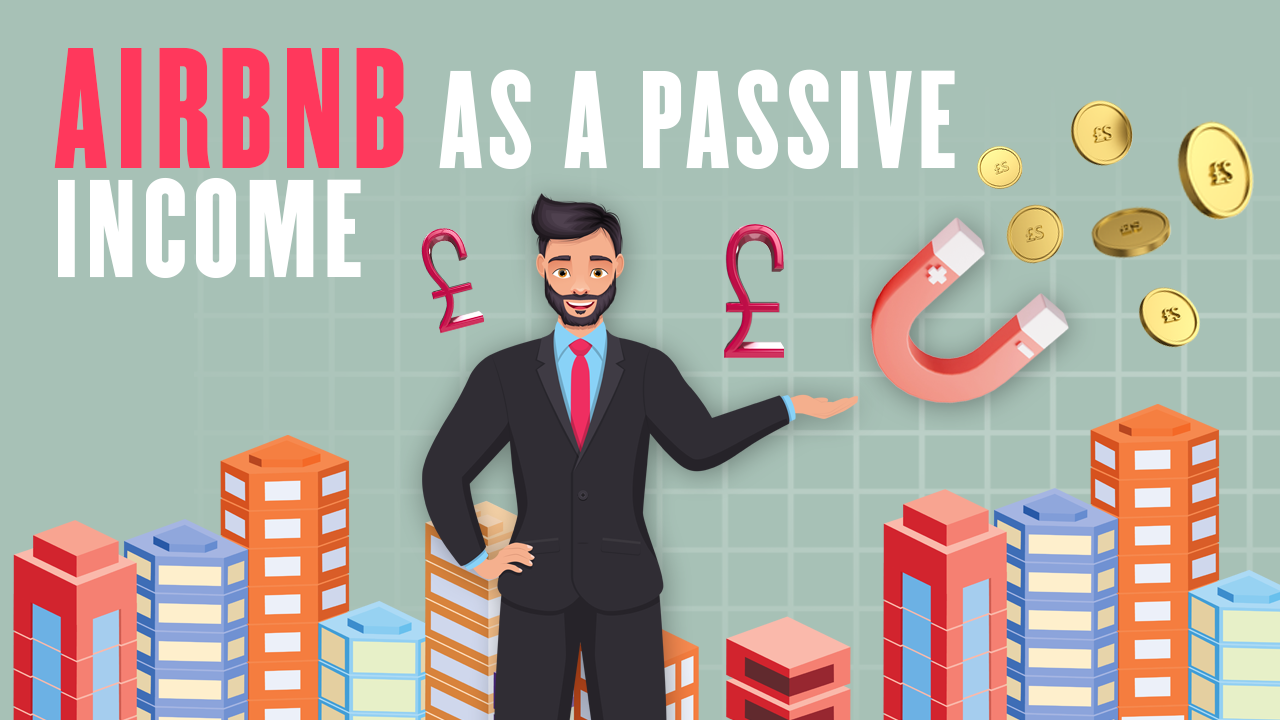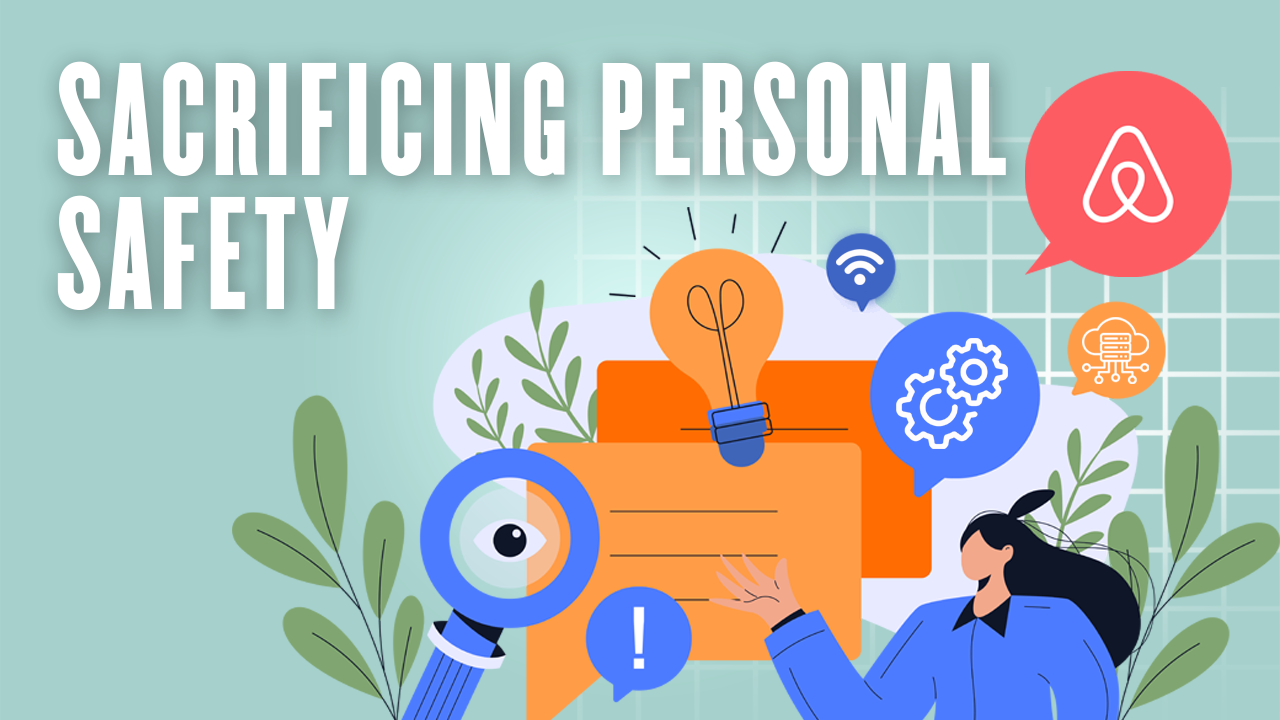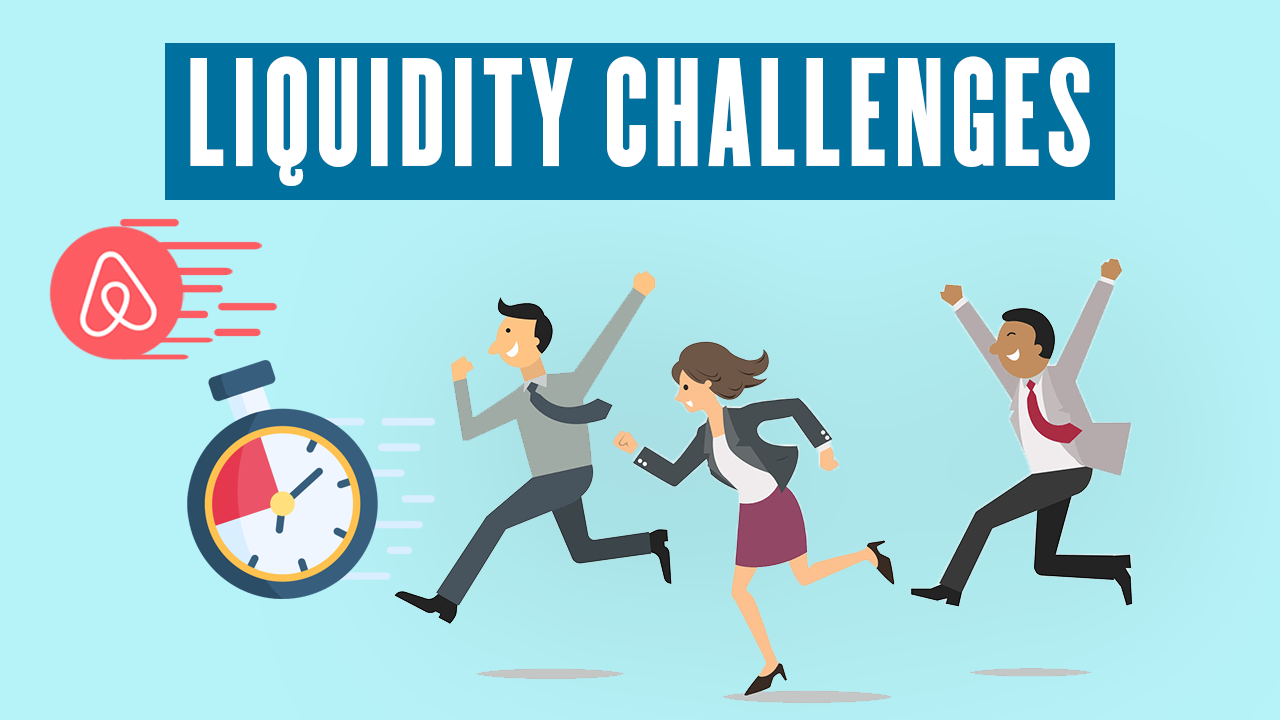This article outlines five significant risks for property owners and provides guidance on mitigating and addressing these challenges when managing your short-term rental property.
If you possess a vacant home, you’ve likely contemplated transforming it into a rental or vacation property. Online platforms such as Airbnb and Vrbo have simplified the process of renting out your space, but concerns about hosting strangers may linger. What risks do Airbnb and similar platforms present, and how can you sidestep these pitfalls, especially concerning financial liability?
But first things first..
Airbnb as a passive income:

Based on data from AirDNA, short-term rental hosts achieved their highest average yearly earnings in 2021, reaching £56,000. While a slight 5% decline is projected for this year due to increased supply and reduced rates, stability is anticipated, followed by further growth in 2023. Despite inflation and soaring fuel costs, recent surveys indicate minimal impact on American travel plans, indicating the resilience of these forecasts against economic challenges.
If you’ve been hesitant about venturing into short-term rental investment due to its complexity, your concerns are valid. Managing a vacation rental involves multiple intricacies, from guest satisfaction to maintaining positive reviews. This is where an experienced and reputable vacation rental property manager proves invaluable, justifying their fees.
If you possess or discover a property with potential as a splendid vacation rental, consider the financials and assess whether engaging a property manager could make vacation rental hosting a viable pursuit. You might realize that becoming an Airbnb host can be a pleasant and profitable experience.
Airbnb Property Investment Risk #1: Sacrificing Personal Safety

Renting your property on Airbnb while residing on-site means relinquishing personal space to unfamiliar individuals. If you’re renting a room, you might even share the space overnight. It becomes your responsibility to ascertain their intentions. Airbnb furnishes profiles for potential guests, enabling you to assess them prior to booking, but true intentions remain undisclosed.
To mitigate risks, we advise a thorough vetting process for tenants. Consider requesting an interview or questionnaire for evaluation. If you feel at ease, proceed with the booking. If not, explore other potential renters.
Alternatively, you can invest in a dedicated Airbnb rental property, preserving your personal space in your primary residence. Financing such an investment is an option, allowing you to benefit from both your residence and Airbnb rental income. Regardless, exercise discretion in guest selection to safeguard your property from potential damage.
Airbnb Property Investment Risk #2: Vacancy Risk
Renting out your Airbnb property investment implies that your property won’t be occupied year-round. The potential for extended vacancies poses a notable risk that demands careful consideration. A low occupancy rate can indeed impact and diminish your rental income, potentially resulting in a negative cash flow. This risk becomes particularly significant if you rely on rental income to cover expenses like mortgages, insurance, property taxes, and others.
To mitigate this risk, astute real estate investors should choose locations with high demand. Typically, these areas are situated in safe neighbourhoods with abundant amenities, good transportation links, and nearby attractions.
To steer clear of extended vacancies and maintain a positive cash flow, turn to Mashvisor’s Airbnb profitability calculator. It provides data on occupancy rates in selected areas and calculates crucial metrics like cap rate, cash-on-cash return, and return on investment, helping you maximize your investment returns.
Airbnb Property Investment Risk #3: Ensuring Guest Safety in Your Airbnb Rental
When you own a vacation rental, a significant worry is the potential for guest injuries or fatalities on your property. Even if you weren’t present when the incident occurred, you could still be legally liable for the accident, leading to substantial medical expenses.
Regrettably, many of the features that make your property attractive to potential guests can also pose risks of accidental injury or death. Common “attractive nuisances” and other potential hazards may include:
- Swimming pools or hot tubs
- Trampolines
- Sporting equipment like bicycles or motorized scooters
- Stoves or outdoor grills
- Uneven or slippery surfaces
- Fireplaces
- Scalding water
To mitigate the risk of accidents and liability, especially if you expect children on the property, it’s wise to implement additional safety measures. For instance, consider installing a fence or cover for your pool and ensure that any maintenance chemicals are kept out of reach.
Additionally, obtaining liability insurance for your Airbnb, Vrbo, or other rental properties is a prudent step. This insurance can provide enhanced financial protection in case you’re held legally responsible for an accident, injury, or fatality.
Airbnb Property Investment Risk #4: Liquidity Challenges

Owning an Airbnb property investment, like other forms of real estate, carries the risk of illiquidity. This means that these investments cannot be readily converted into cash. Selling a property demands time and effort, and hasty sales often result in lower prices and potential losses.
To mitigate liquidity concerns, it’s advisable to conduct a thorough assessment of your financial stability. If you require additional funds, you might contemplate renting out multiple bedrooms in your property. Alternatively, if you’re already doing so, consider making minor improvements to command higher rental rates.
Airbnb Property Investment Risk #5: Dealing with Problematic Tenants
When renting out your property, the prospect of troublesome tenants is a legitimate concern. Horror stories abound, from property damage to tenants overstaying their agreements. Airbnb provides some coverage through its Host Protection Concierge, but it doesn’t encompass every possible incident.
While there’s no foolproof method to entirely eliminate the risk of challenging tenants, there are steps you can take to minimize it. Start by conducting thorough assessments of potential renters. Scrutinize reviews posted by other hosts on renters’ profiles, and steer clear of those with negative feedback. Once you’ve selected tenants, issue clear warnings in advance, emphasizing their responsibility for any damages. Consider providing a comprehensive manual outlining precautions and penalties for tenants to abide by.
Conclusion:
The expanding sharing economy presents newfound avenues for earning supplementary income, previously nonexistent just a few years ago. Engaging in these opportunities often entails navigating uncertain local regulations, entrusting your valuable assets to unfamiliar individuals, and shouldering added legal responsibilities. Airbnb is no different, yet if you’re prepared to embrace these risks, you stand to potentially earn thousands of additional pounds annually.
MORE Serviced Accommodation blogs HERE:
How to Handle Undisclosed Airbnb Earnings
Is airbnb a good source of passive income?
Should I Turn My Rental Property Into An Airbnb
Where Do Airbnb Hosts Make The Most Money in the UK
Airbnb vs. Renting: Which is Profitable for Landlords?
Can You Make a Living From Airbnb UK
